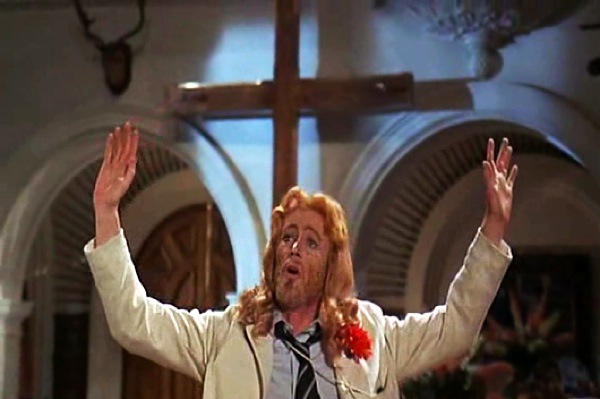As a small tribute to Peter O’Toole, who just died, I re-run this review of one his best films. You may enjoy also the RBC Recommendation of another O’Toole gem, The Ruling Class
This star vehicle for Peter O’Toole (playing a drunken, rakish movie star reminiscent of Peter O’Toole) delivers big laughs as well as some acute observations on the nature of fame. The movie also opens a window into the world of 1950s live television comedy and the people who made it happen.
The supporting cast is filled with wily veterans who know how to get the most laughs out of the material. Bill Macy is perfect as the beleaguered head writer, and Joseph Bologna is almost as good as a Sid Caesaresque television star. Another treat: In the sweet scene in which O’Toole dances with an older woman on her wedding anniversary, the role is played by 1930s film star Gloria Stuart (two of her best are Prisoner of Shark Island and The Old Dark House).
This was Richard Benjamin’s first time out as a director, and it shows a bit. The tone and style of the film are not as consistent as what he would achieve in his films as he became more experienced. The script, while funny most of the time, also includes some weak gags and slow spots. Can one extremely charming star leap over such weaknesses in a single bound and keep the audience laughing and cheering? In O’Toole’s case, the answer is clearly yes.
